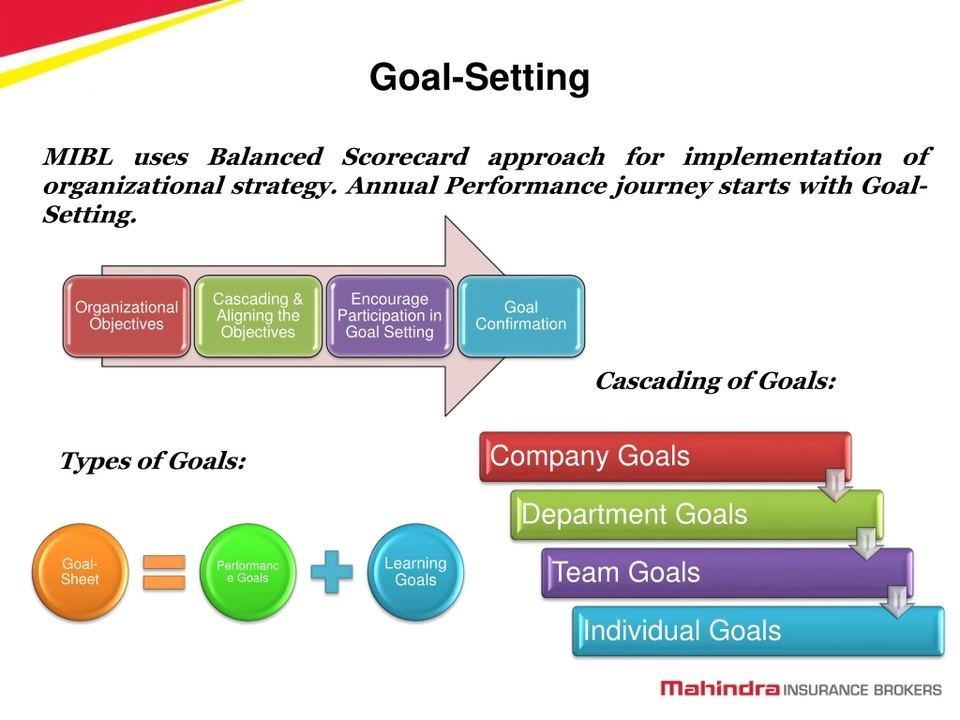The Importance of Setting Long-Term Goals
As we embark on our personal and professional journeys, setting long-term goals is a crucial step in achieving success. These goals provide us with a sense of direction and motivation, helping us stay focused on the bigger picture. In this section, we'll discuss the importance of setting long-term goals and how they can help guide us towards living our best lives.
Long-term goals are essential because they give us something to strive for, allowing us to see beyond our current circumstances and plan for a better future. They act as a roadmap, guiding us on the path towards achieving our dreams and aspirations. Additionally, long-term goals can help us stay motivated during challenging times, reminding us of the end result we're working towards.
Furthermore, setting long-term goals can improve our decision-making skills, as we'll be more likely to weigh our options carefully and make choices that align with our long-term objectives. This can lead to a more fulfilling and successful life, both personally and professionally.
SMART Criteria: Creating Effective Long-Term Goals
When setting long-term goals, it's important to ensure that they are effective and achievable. One widely-used method to create successful goals is the SMART criteria. SMART stands for Specific, Measurable, Achievable, Relevant, and Time-bound. In this section, we'll explore each aspect of the SMART criteria and how it can help you create effective long-term goals.
Specific goals are well-defined and clear, allowing you to understand exactly what needs to be accomplished. Measurable goals have tangible outcomes that can be tracked and evaluated, ensuring that you can monitor your progress. Achievable goals are realistic and attainable, taking into account your current resources and limitations. Relevant goals align with your overall life values and priorities, ensuring that they contribute to your long-term success. Finally, Time-bound goals have a deadline, creating a sense of urgency and providing motivation to stay on track.
By using the SMART criteria, you can create long-term goals that are more likely to be achieved, leading to greater success in both your personal and professional life.
Breaking Down Long-Term Goals into Short-Term Milestones
While long-term goals are essential for guiding us towards our future aspirations, they can sometimes feel overwhelming and unattainable. To make these goals more manageable and achievable, it's important to break them down into smaller, short-term milestones. In this section, we'll discuss the benefits of breaking down long-term goals into short-term milestones and how to do so effectively.
By dividing our long-term goals into smaller, more manageable steps, we can make steady progress towards our objectives. This approach can help prevent feelings of overwhelm and discouragement, as we can see our progress more clearly and celebrate our achievements along the way. Additionally, breaking down long-term goals into short-term milestones can make it easier to stay focused and motivated, as we're constantly working towards smaller, achievable targets.
To break down a long-term goal into short-term milestones, start by identifying the smaller tasks or objectives that need to be completed in order to achieve the overall goal. Then, prioritize these tasks and create a timeline for their completion, ensuring that each milestone is aligned with the SMART criteria. By doing this, you'll be better equipped to stay on track and achieve your long-term goals.
Accountability and Support: Staying Committed to Your Long-Term Goals
Achieving long-term goals can be challenging, and it's essential to have strategies in place to help you stay committed and focused throughout your journey. One effective approach is to establish a system of accountability and support, which can help you stay on track and motivated as you work towards your goals. In this section, we'll discuss the importance of accountability and support and how to create a strong support system.
Accountability involves taking responsibility for your actions and ensuring that you're doing everything in your power to achieve your long-term goals. This can help prevent procrastination and keep you focused on your objectives. Support, on the other hand, involves surrounding yourself with individuals who believe in your goals and can provide encouragement, guidance, and assistance when needed.
To create a strong system of accountability and support, consider sharing your long-term goals with friends, family, or colleagues who can help you stay focused and motivated. You can also join groups or communities with similar goals, providing an opportunity to connect with others who are working towards similar objectives. By having a strong support system in place, you'll be better equipped to overcome challenges and achieve your long-term goals.
Regularly Reviewing and Adjusting Your Long-Term Goals
As we grow and evolve, our priorities and aspirations may change. It's important to regularly review and adjust our long-term goals to ensure that they remain aligned with our values and objectives. In this section, we'll discuss the importance of reviewing and adjusting your long-term goals and how to do so effectively.
Regularly reviewing your long-term goals allows you to assess your progress and determine if any adjustments need to be made. This can help ensure that your goals remain relevant and achievable, preventing wasted time and effort on objectives that no longer align with your priorities. Additionally, reviewing your goals can help you identify any areas where you may need additional support or resources, allowing you to take proactive steps to address these challenges.
To effectively review and adjust your long-term goals, schedule regular check-ins, and assess your progress towards each objective. Consider whether your goals still align with your values and priorities, and make any necessary adjustments to ensure that you're on the right path. By regularly reviewing and adjusting your long-term goals, you can stay focused on your aspirations and continue to make progress towards achieving them.
